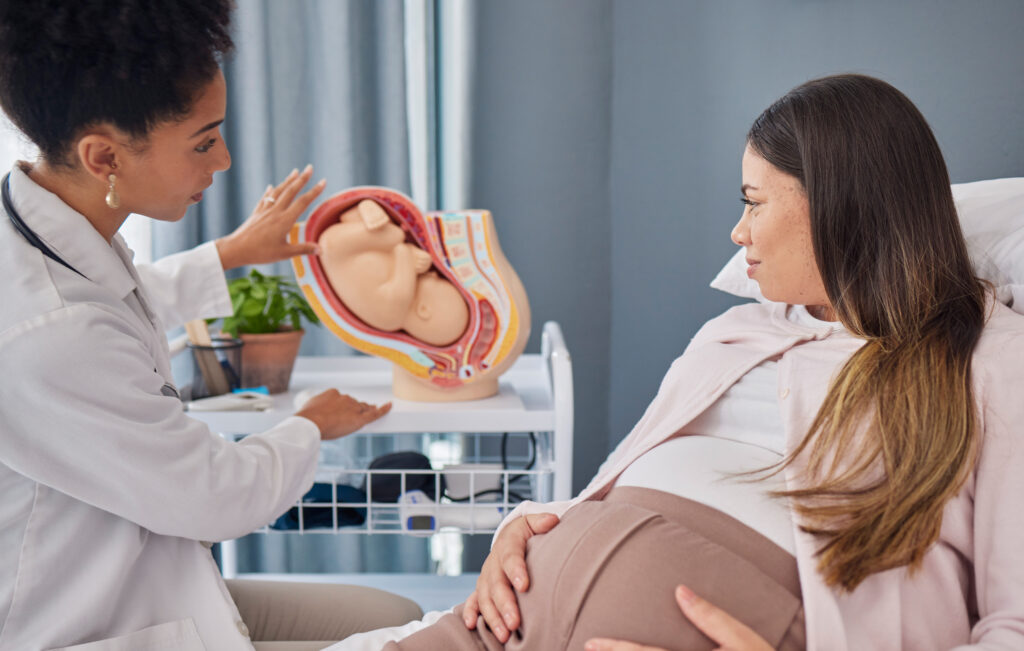
- +61 1300 704 750
- admin@parentinggenie.com.au
- PO Box 706, Townsville, QLD 4810

When Emily found out she was pregnant, she felt joy she could barely put into words. But halfway through her pregnancy, things changed. She was diagnosed with gestational diabetes. Suddenly, her days were filled with blood sugar checks, diet changes, and constant worry about her baby’s growth. Emily’s story isn’t unique. In fact, many expectant mothers discover that even with the best preparation, pregnancy doesn’t always go exactly as planned. Common Pregnancy Complications!
Although most pregnancies progress smoothly, some women experience complications that require extra care. Understanding the signs, risk factors, and management options is not only reassuring—it can also make a life-changing difference.
Pregnancy complications are unexpected health problems that affect the mother, baby, placenta, or uterus during pregnancy. These challenges can appear at any stage, from the first trimester to the final weeks, and range from mild to life-threatening.
Some of the most common complications of pregnancy include:
While these conditions can be frightening, timely pregnancy care and strong support systems often ensure safe deliveries and healthy babies.
Gestational diabetes occurs when the body cannot regulate blood sugar effectively during pregnancy.
Preeclampsia is a serious condition that develops after 20 weeks of pregnancy and involves high blood pressure and possible organ damage.
Miscarriage is defined as pregnancy loss before 20 weeks.
Ectopic pregnancy occurs when a fertilised egg implants outside the uterus, usually in a fallopian tube.
Preterm birth refers to babies born before 37 weeks.
The placenta is essential for nourishing your baby, but complications can arise.
Stillbirth is the loss of a baby after 20-weeks.

| Complication | Symptoms | Risks | Solutions |
| Gestational Diabetes | Thirst, fatigue, sometimes no symptoms | High birth weight, caesarean risk, future diabetes | Diet, exercise, blood sugar monitoring, medication if needed |
| Pre-eclampsia | High BP, swelling, headaches, vision changes | Seizures, premature birth, risk to mother and fetus | BP medication, monitoring, possible early delivery |
| Miscarriage | Bleeding, cramping, tissue passing | Pregnancy loss before 20 weeks | Medical care, rest, emotional support, evaluation |
| Ectopic Pregnancy | Severe abdominal pain, bleeding, dizziness | Life-threatening rupture, internal bleeding | Emergency surgery or medication |
| Preterm Birth | Contractions, rupture of membranes before 37 weeks | Low birth weight, breathing issues, delays | Bed rest, medication, neonatal intensive care |
| Placenta Problems | Vaginal bleeding, abnormal placenta position | Heavy bleeding, emergency delivery | Bed rest, monitoring, caesarean |
| Stillbirth | Reduced or no fetal movement | Fetal death after 20 weeks | Monitoring, addressing maternal risk factors, and intervention |
The chances of experiencing complications may increase if you have:
Although these factors raise concern, they don’t guarantee complications. Still, awareness allows you to seek support early.
Even with the best care, emergencies may arise. Recognising the warning signs can save lives.
| Symptom | What It May Indicate |
| Severe vaginal bleeding (heavier than a period) | Miscarriage, placenta previa, or abruption |
| Severe abdominal or pelvic pain not eased by rest | Ectopic pregnancy, miscarriage, or other complication |
| Severe headache, blurred vision, sudden swelling | Signs of preeclampsia |
| High fever, chills, or flu-like symptoms | Infection needing urgent care |
| Decreased or no fetal movement after 28 weeks | Possible fetal distress or stillbirth |
| Persistent vomiting | Risk of dehydration, malnutrition, or hyperemesis gravidarum |
| Preterm labour signs (contractions, rupture of membranes, back pain) | Preterm birth |
| Dizziness, fainting, or difficulty breathing | Severe complication, anemia, or blood clot |
These symptoms may signal complications like pre-eclampsia, ectopic pregnancy, early birth, or placenta problems. Acting quickly reduces risks for both mother and baby.
To help you feel confident and prepared, here’s another checklist every parent-to-be should keep handy. Use it as a reference throughout your pregnancy so that, whenever uncertainty arises, you’ll know exactly when to call your doctor or seek immediate care.

| Category | What to Have Ready | Why It Matters |
| Medical Information | Health records, doctor/midwife contacts, insurance details | Ensures quick access to vital info |
| Emergency Numbers | Hospital, ambulance, partner/family contacts | Help is only a call away |
| Essentials for Mum | Packed hospital bag, maternity pads, comfortable clothing | Reduces stress during sudden labour |
| Essentials for Baby | Nappies, blanket, installed car seat | Keeps baby safe from the start |
| Home Safety | Clear entry for ambulance, first aid kit, backup transport | Prepares home for emergencies |
| Food & Fluids | Water bottles, snacks, electrolyte drinks | Prevents dehydration and exhaustion |
| Other Items | Charged phone, power bank, cash, ID, spare keys | Keeps communication and access smooth |
Facing a complication can be overwhelming; however, knowledge is empowering. Whether it’s gestational diabetes, preeclampsia, or preterm birth, early detection and timely treatment often make all the difference. With awareness, preparation, and support, most women still experience safe pregnancies and healthy babies.
Use our Pregnancy Journal to track symptoms, blood pressure, and changes week by week.
Join our Parenting Community to share experiences and find support from other mums.
Access expert guidance instantly through Genie Chat — your 24/7 parenting companion.
Visit the Parenting Genie website for more tools and resources.
Explore the Raising Children website for evidence-based insights on pregnancy complications.